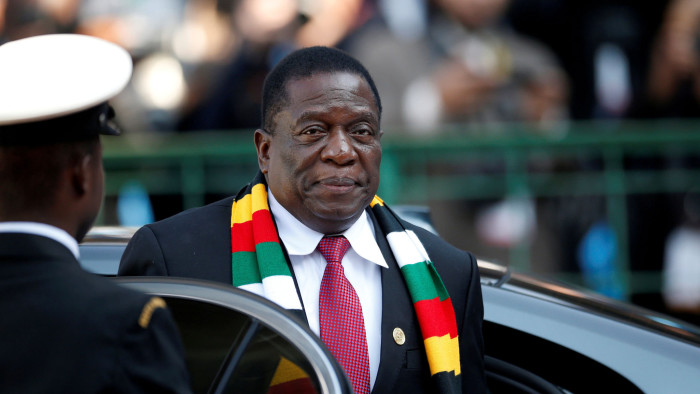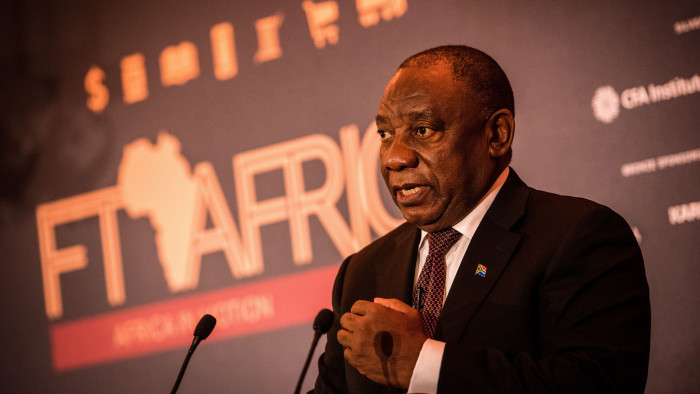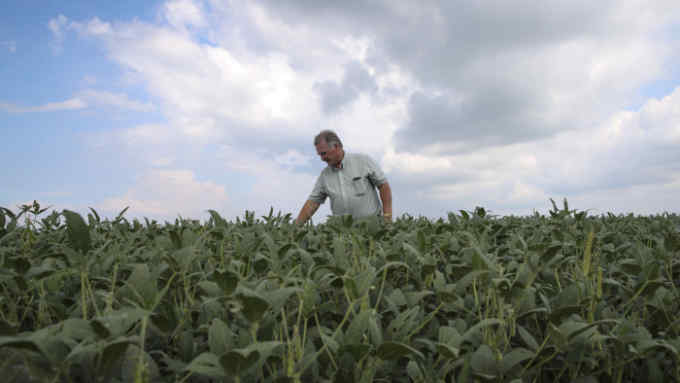Post-Mandela Africa seeks practical ideas as Davos ‘jamboree’ loses lustre

Roula Khalaf, Editor of the FT, selects her favourite stories in this weekly newsletter.
The first time Nelson Mandela and FW de Klerk met in public on foreign soil was at Davos. It was 1992. Mandela, then president of the recently unbanned African National Congress, had been released from prison two years earlier. Although he had met the South African president on several occasions on home soil, it was at the World Economic Forum that they encountered each other for the first time under the full international glare.
So important was the symbolism that the opening of South Africa’s parliament in Cape Town had been delayed to make the meeting possible. In front of 1,000 WEF delegates both men spoke of their hopes for a peaceful transition to black-majority rule.
Mandela, in a speech of some lyrical optimism, put the new South Africa “of many colours, languages and cultures” in the hopeful context of “a future in which the peoples, in all countries, will govern themselves under open and plural democratic systems”.
But to the elites of Davos — for whom the problems of Africa and elsewhere in the developing world have often appeared more a subject of intellectual debate than of pressing urgency — he also sounded a warning. “It is a matter of common cause among us here that the continued impoverishment of millions of people throughout the world has become one of the great sources of global instability,” he told his audience — incidentally, nearly two decades before the 2011 eruption of the Arab Spring in north Africa.
For Mandela, the problems of the rich and developing world were deeply connected. He was early to sound a warning over climate change, which today threatens Africa with drought and destructive weather patterns. “The planet [we] inhabit faces the awesome menace of destruction as a result of a human-made ecological catastrophe,” he said in his 1992 speech.
This year, Greta Thunberg, the Swedish environmental campaigner, has called on those attending Davos to end all investments in fossil fuel use, extraction and subsidies. The demand is not universally popular in Africa, the countries of which have themselves made a negligible contribution to global greenhouse emissions.
The year of Mandela’s appearance was perhaps the only one in Davos’s 50-year history that Africa took anything like centre stage. Even though in about 20 years from now something like a quarter of the world’s population will be African, the continent is mostly on the periphery of the Davos agenda.
In recent years, the only thing that has come close to Mandela’s intervention is the appearance, in 2018, of three African leaders, when southern Africa was once again undergoing a moment of upheaval. The three in question were Cyril Ramaphosa, then, like his predecessor, president of the ANC but not yet of South Africa; Joao Lourenço, who had recently taken over the leadership of oil-rich Angola after 38 years in which his predecessor, José Eduardo dos Santos, had run the country like a family business; and Emmerson Mnangagwa who two months before had become Zimbabwe’s president after a coup that ended Robert Mugabe’s 37-year dictatorship.

Mr Mnangagwa, who turned up in a stripy woollen scarf that has become his calling card, made a particular splash. He declared Zimbabwe “open for business”, ready to accept foreign investment and to repair relations with the international community after years of sanctions and debt default.
Sadly for Zimbabwe, the gap between reality and rhetorical flourish in the Swiss Alps was quickly laid bare. The Zimbabwean president, by then re-elected in a flawed and violent poll, was forced to cancel his 2019 appearance, amid a worsening economic crisis and a brutal Mugabe-style crackdown by his own security forces. Mr Mnangagwa will be back this year but few will listen to his spin on the “new Zimbabwe” with the same credulity.
Dele Olojede, a Pulitzer Prize-winning Nigerian journalist, feels the allure of Davos is diminishing. “I don’t think it has the magic it once did,” he says. “It doesn’t actually address in a systematic way the kind of challenges and opportunities that African leaders are confronting. It has become a bit of a jamboree.”
Last year, Mr Olojede ran his inaugural Africa in the World, invitation-only conference in Stellenbosch, an hour’s drive from Cape Town, where the WEF was holding its annual “African Davos” event. While the latter was boycotted by the Nigerian delegation in a protest against xenophobic attacks on Nigerian nationals in South Africa, Mr Olojede’s alternative forum played host to a heartfelt debate between Nigerians and South Africans about the root causes of tensions.
By inviting people with ideas about how to transform Africa, not just those who can afford to pay, Mr Olojede argues his event is more relevant to the real needs of the continent. Among the topics to be discussed at this year’s follow-up event will be whether malaria can be eradicated through the release of genetically engineered mosquitoes, something that could save hundreds of thousands of lives.
Back in 1992, Mandela told delegates that the problem of poverty in Africa and other poor regions of the world did not only afflict those who were deprived. “It reverberates across the globe and ineluctably impacts negatively on the whole of humanity, including those who live in conditions of comfort and plenty.”
The inescapable conclusion, he said, was that people from across the continents must work together “to launch a global offensive for development, prosperity and human survival”. His message reflected the views commonly expressed by those who attend Davos. It does not take a Mandela to note that, in reality, the world has since retreated from such ideals.

Comments